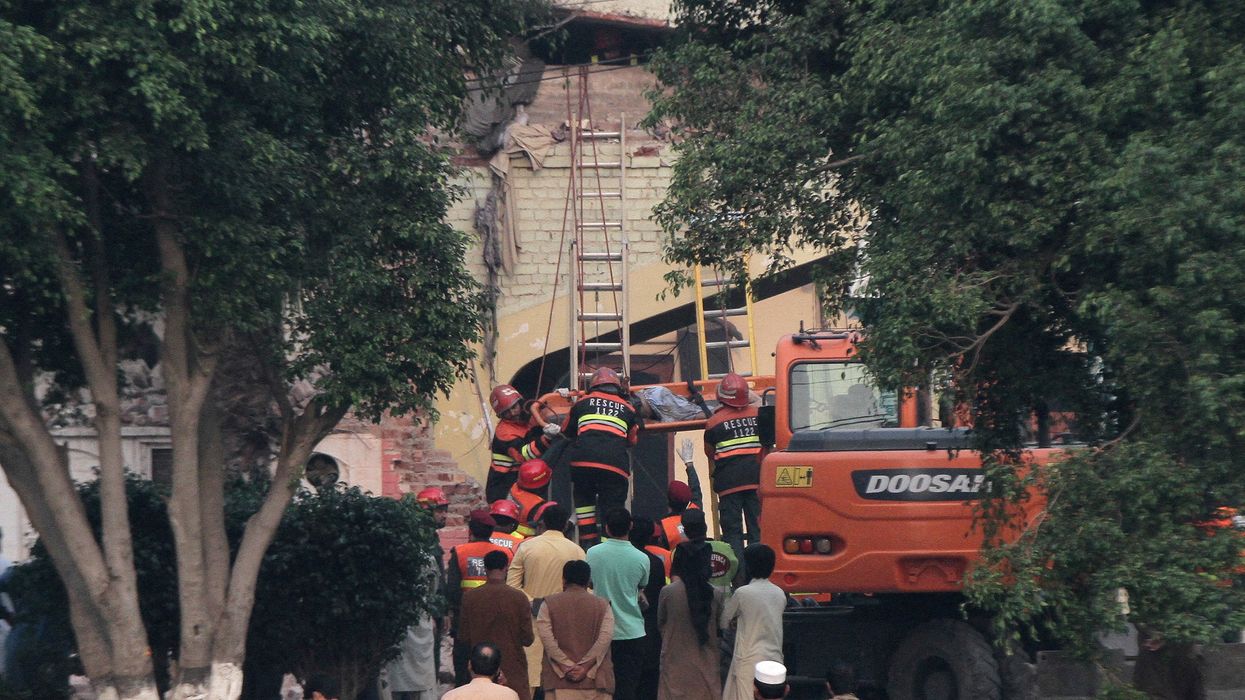INDIA said on Wednesday it had carried out strikes on nine locations in Pakistan that it described as sites "from where terrorist attacks against India have been planned and directed." The action followed last month’s deadly attack in Kashmir.
India and Pakistan, both nuclear-armed nations, have fought two wars since their independence from Britain in 1947 over the disputed region of Kashmir, which both countries control in part and claim in full.
New Delhi said last month’s attack in a Himalayan meadow in Kashmir was carried out by a group linked to Lashkar-e-Taiba, a Pakistan-based terror group.
ALSO READ: UK says ready to help India and Pakistan de-escalate tensions
Pakistan denied involvement in the Kashmir attack and said the Indian strikes killed 26 civilians.
Pakistan warned that it would respond "to this aggression at a time, place, and means of our own choice."
India said seven of the nine sites it targeted were being used by Lashkar-e-Taiba (LeT) and Jaish-e-Mohammad (JeM), both of which are designated as terrorist organisations by the United Nations Security Council.
India has long accused Pakistan of supporting Islamist terror groups that operate against Indian interests, especially in Kashmir. Pakistan denies the charge and accuses India of backing separatist rebels in Pakistan, which New Delhi denies.
ALSO READ: What is Operation Sindoor, India's strikes in Pakistan?
Lashkar-e-Taiba (LeT)
Lashkar-e-Taiba, which means "army of the pure", is based in Pakistan's Punjab province. The group has focused on fighting Indian rule in Kashmir.
The UN Security Council says the group has carried out "numerous terrorist operations" against both civilian and military targets since 1993. These include the November 2008 Mumbai attacks in which 166 people were killed.
LeT was founded around 1990 by Hafiz Saeed, who has denied any role in the 2008 Mumbai attacks. The UN says the group was also involved in the July 2006 Mumbai train bombings and the December 2001 attack on India’s parliament.
India said it targeted the Markaz Taiba site in Muridke, near Lahore, where the Mumbai attackers had been trained. Muridke is believed to host the group's headquarters. Markaz means headquarters.
ALSO READ: India launches strikes on Pakistan after Kashmir attack; dozens killed in border clashes
Pakistan has said the group has been banned and neutralised. Hafiz Saeed was arrested in 2019 and convicted of several terrorism financing charges. He is serving a 31-year sentence.
Critics say the group still operates in the region under the cover of charitable activities.
Jaish-e-Mohammad (JeM)
Jaish-e-Mohammad, or Army of the Prophet Mohammad, is also based in Punjab. It was founded by Masood Azhar in 1999 after he was released from an Indian prison in exchange for 155 hostages from an Indian Airlines flight hijacked to Kandahar, according to the UN Security Council.
Pakistan banned the group in 2002 after it, along with LeT, was linked to the 2001 attack on India’s parliament.
The UN has said JeM had ties with al Qaeda and the Taliban. The group is believed to operate from Bahawalpur in Pakistan’s Punjab province.
JeM has claimed responsibility for multiple suicide bombings in Kashmir. India has faced an armed insurgency in the region since the late 1980s, though violence has declined in recent years.
India said it struck JeM’s Markaz Subhan Allah in Bahawalpur, which it described as the group’s headquarters, located about 100 km from the Indian border.
Despite the ban, authorities in the US and India say JeM continues to operate openly. Azhar has not made public appearances in recent years, though reports suggest he remains near Bahawalpur, where he runs a religious institution.
(With inputs from agencies)





